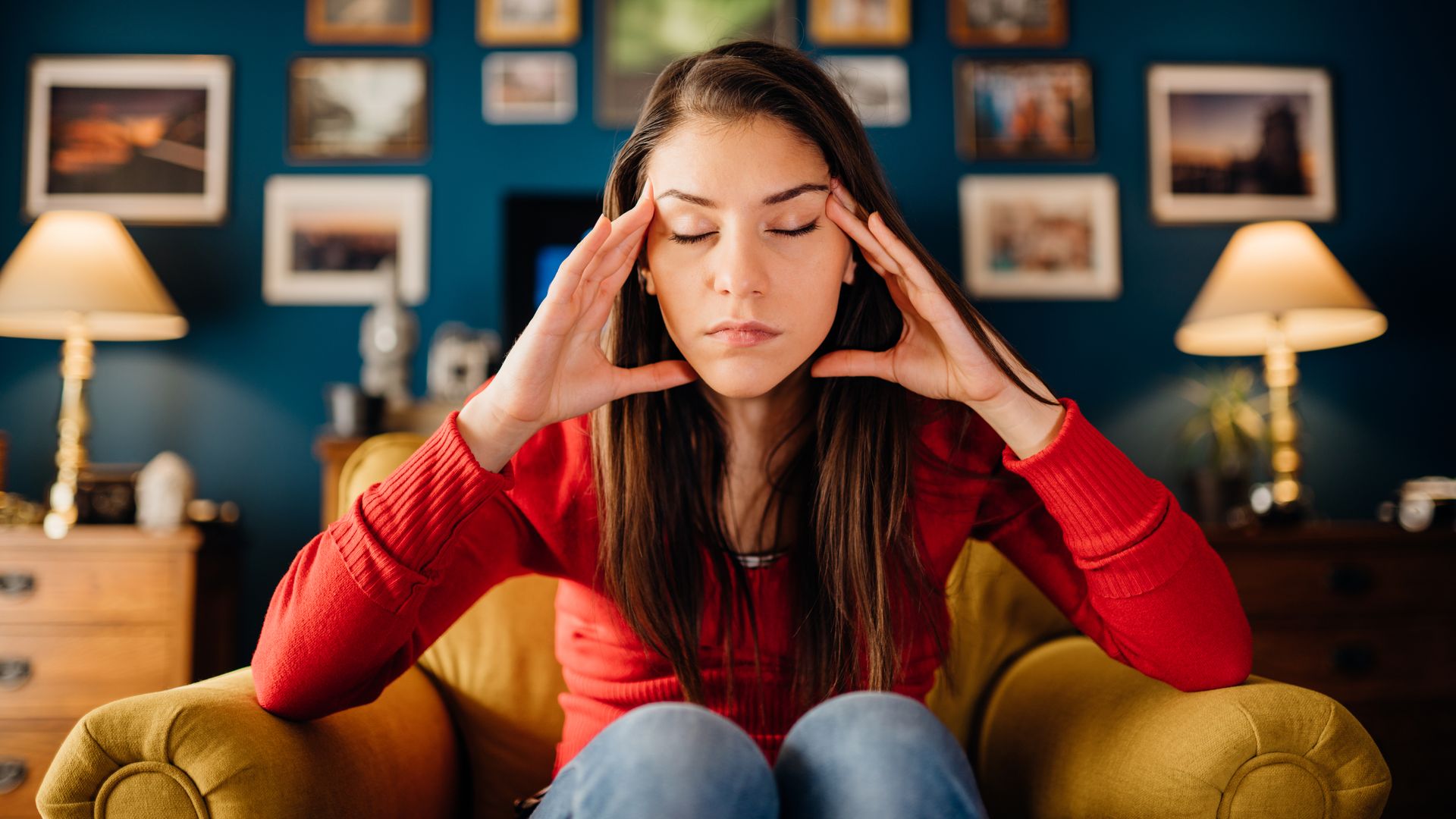The common problem of overthinking has become a hot topic, with 223.3 million posts on TikTok and a 227% rise in Google searches for "stop overthinking" in the past month. But did you know that your hormones could be the reason that you are spending so much time worrying about even the tiniest minutiae in your life?
Hormone health expert Mike Kocsis from Balance My Hormones explains to HELLO! that when your hormones are out of balance, it's not just your physical health that takes a hit - your mental well-being can suffer too, especially your ability to regulate and contextualise thoughts and emotions.
“Oestrogen plays an important role in mood regulation,” Mike explains, “and during perimenopause and menopause, oestrogen levels decline significantly, which can lead to symptoms like anxiety and depression - and these hormonal shifts can make it harder to control intrusive thoughts, overthinking, and rumination. So if you haven’t always been an overthinker, and the tendency to ruminate started at around the time you started perimenopause or menopause, it could be a sign that it’s down to your hormones.”
READ: Why gut health is so important during menopause according to a nutritionist
When hormone levels drop, serotonin levels also fall, which contributes to increased irritability, anxiety and sadness. “Serotonin, the 'happy hormone', regulates your mood and sleep pattern,” Mike explains, “and low serotonin levels can make it harder for your brain to let go of negative thoughts, creating a vicious cycle of overthinking and unhappiness."
Progesterone, cortisol and oxytocin imbalances can also trigger ‘overthinking episodes’ too. Fluctuations in progesterone levels during menopause can cause mood swings and anxiety, which will increase cortisol, the stress hormone, keeping your body on high alert, leading to sleep difficulties and depression.
Is it my hormones? Or am I just a natural worrier?
Mike explains that hormonal overthinking tends to be more persistent and intense than typical worrying. He says that it can dominate your thoughts for extended periods, making it harder to manage.
Tracking your symptoms and discussing them with your doctor can help determine if hormones are at play. Medical assessments, including hormone panel blood tests and psychological evaluations, can pinpoint the issue too.
How to stop hormonal overthinking
If hormonal imbalances are confirmed, Mike explains that your doctor might recommend Hormone Replacement Therapy (HRT), which includes oestrogens and progestogens to raise hormone levels which can alleviate anxiety and reduce overthinking.
But if HRT isn’t suitable for you, Mike explains that there are other options:
Take up mindfulness or journalling
Practices like meditation and deep breathing can help calm the mind and prevent overthinking spirals, while Cognitive Behavioural Strategies (CBT), that are taught by a therapist, can help identify and manage negative thought patterns. “Writing down your worries and concerns in a journal could help you gain perspective and end the cycle of overthinking too,” Mike explains.
Avoid caffeine and alcohol
Caffeine can increase anxiety, while alcohol, though initially relaxing, can disrupt sleep and lead to 'hangxiety'. “Caffeine is a stimulant that can increase your heart rate, leading to feeling of anxiety, making it harder for your mind to relax,” Mike explains. “Alcohol can initially have the opposite effect and make you feel more relaxed, but as it wears off, it can disrupt your sleep and lead to 'hangxiety', making you overthink everything you did and said the previous night.”
Vitamin D and Omega 3 supplements will help
Supplements like vitamin D and omega-3s may also reduce anxiety and overthinking. “Studies have suggested that low levels of vitamin D could be linked to mood swings and anxiety, and other studies suggest that if the brain is lacking omega-3s, it could induce behavioural and psychiatric disorders,” Mike explains.
Exercise everyday
“Regular exercise releases endorphins - the feel good hormones - which fight against stress hormones like cortisol and have mood-boosting effects,” explains Mike. “Exercise increases blood flow throughout the body, including to the adrenal glands and ovaries; this improved circulation can support the production and raise the levels of hormones like oestrogen and progesterone.”










